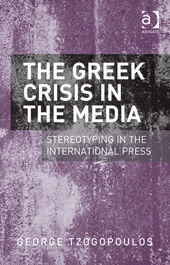Spence, Michael, (2013), “Learning about growth from austerity”, www.project-syndicate.org, 18 Μαΐου. In a recent set of studies, Carmen Reinhart and Kenneth Rogoff used a vast array of historical data to show that the accumulation of high levels of public (and private) debt relative to GDP has an extended negative effect on growth. The size of the effect incited debate about errors in their calculations. Few, however, doubt the validity of …Read More
Propping up teetering Europe necessary for China’s own interests
Tzogopoulos, George (2013), “Propping up teetering Europe necessary for China’s own interests”, Global Times, 16 Μαΐου. The European debt crisis is a significant challenge for China. There’s the risk for Beijing’s export-dependent economy and the threat to China’s attempt to achieve a successful diversification of its currency reserves. But perhaps the most important problem is that a potential disintegration of the European common currency area might have dramatic consequences on …Read More
EU-IMF assistance to euro area countries: an early assessment
Pisani-Ferry, Jean, Sapir, André & Wolff, Guntram, (2013), EU-IMF assistance to euro area countries: an early assessment, Bruegel. Three years ago, in May 2010, Greece became the first euro-area country to receive financial assistance from the European Union and the International Monetary Fund in exchange for implementing an economic programme designed by the Troika of the European Commission, the European Central Bank and the IMF. Within a year, Ireland and Portugal went …Read More
The continent-wide rise of Euroscepticism
Torreblanca, Jose Ignacio and Leonard, Mark, (2013), “The continent-wide rise of Euroscepticism”, European Council on Foreign Relations, 16 Μαΐου. Euroscepticism has spread across the continent like a virus. It is striking that everyone in the EU has been losing faith in the European project: both creditors and debtors, eurozone countries, would- be members and “opt-outs”. So what is going on? In ECFR’s new policy memo – The continent – wide …Read More
Τριμηνιαία Έκθεση για την Εκτέλεση του Προϋπολογισμού: Ιανουάριος-Μάρτιος 2013
Γραφείο Προϋπολογισμού του Κράτους, (2013), Τριμηνιαία Έκθεση: Ιανουάριος-Μάρτιος 2013.
European Economic Forecast: Spring 2013
European Commission, (2013), European Economic Forecast: Spring 2013.
Democracy, Solidarity And The European Crisis
Habermas, Jürgen, (2013), “Democracy, Solidarity And The European Crisis”, Social Europe Journal, 7 Μαΐου. The European Union owes its existence to the efforts of political elites who could count on the passive consent of their more or less indifferent populations as long as the peoples could regard the Union as also being in their economic interests, all things considered. The Union has legitimized itself in the eyes of the citizens …Read More
The Greek Crisis in the Media
Tzogopoulos, George, (2013), The Greek Crisis in the Media, Ashgate. The portrayal of Greece by the international press during the financial crisis has been seen by many independent observers as very harsh. The Greeks have often been blamed for a myriad of international political problems and external economic factors beyond their control. In this original and insightful work George Tzogopoulos examines international newspaper coverage of the unfolding economic crisis in …Read More
Europe’s Lost Generation?
FutureLab Europe, (2013), “Europe’s Lost Generation?”, European Policy Centre, 29 Απριλίου. Europe’s youth has been hit hard by the economic crisis. An unprecedented level of youth unemployment, emigration and disaffection has earned Europe’s current cohort of young people the unenviable label: lost generation. FutureLab Europe consists of a group of young people from across the European continent that is currently seeking to better understand the problems of the “lost generation”. …Read More
Did the euro kill governance in the periphery
Villaverde, Jesus Fernandez, Garikano, Luis, Santos, Tano, (2013), “Did the euro kill governance in the periphery” , www.voxeu.org, 30 Απριλίου. By the end of the 1990s, under the incentive of Eurozone entry, most peripheral European countries were busy undertaking structural reforms and putting their fiscal houses in order. This column argues that the arrival of the euro, and the subsequent interest-rate convergence, loosened a tide of cheap money that reversed …Read More





